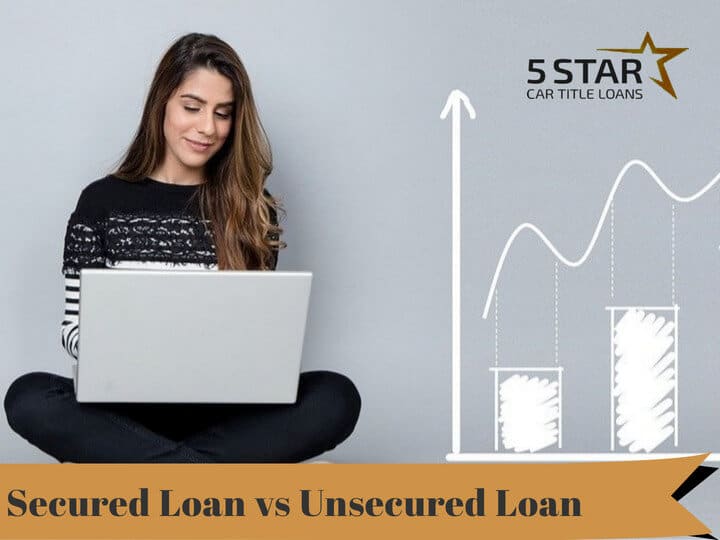
Understanding the difference between secured and unsecured loans is crucial before starting your borrowing journey. While both forms of loans share the concept of borrowing money and paying it back over time, it is important to know the differences.
Secured loans use some sort of collateral to back the loan, and unsecured loans do not. From a personal loan to a mortgage, there are numerous loan types available, each with its own set of characteristics.
Key Takeaways:
- Secured loans are easier to get with bad credit, but you risk losing your asset if you don’t repay.
- Unsecured loans have no collateral, are based on credit score, but do not risk losing an asset.
- Choose your loan wisely! Consider your credit, the loan’s purpose, and your ability to repay the loan.
Secured Loans vs. Unsecured Loans: Key Differences
Secured Loans:
Secured loans require collateral, which can be an asset you own. This asset serves as security for the lender. If you fail to repay the secured loan, the lender has the right to seize and sell the collateral to recoup their losses. Common examples of collateral for secured debt include title loans, cars (auto loans), houses (mortgages), and investment accounts (margin loans).
Unsecured Loans:
As the name suggests, unsecured loans do not require collateral. They are based solely on your creditworthiness, which is typically assessed by your credit score and income history. Examples of unsecured debt include personal loans, credit card debt, and student loans (though some student loans are secured).
It is important to remember even without collateral, there are consequences for not repaying your unsecured debt.
Secured Loans VS. Unsecured Loans
| Criteria | Secured Loans | Unsecured Loans |
| Interest Rates | Typically offer a lower interest rate because the lender has the security of collateral. | Often has a higher interest rate due to increased risk for lenders. |
| Qualification | Easier qualification if you have good credit and valuable collateral, even with limited credit history. | Harder to qualify for, especially with limited credit history or poor credit score. |
| Risk | Risk of losing collateral if you default on the loan; the lender can repossess the asset. | No risk of losing collateral, as there is none involved. |
| Restrictions on Collateral Use | May have limitations on how you can use the collateral during the loan term (e.g., cannot sell a car with a lien without lender approval). | More flexible use of funds, as there are typically no restrictions on how the loan amount is used. |
Additional Considerations
| Borrowing Limits | Potential for higher borrowing limits because the loan is secured by valuable collateral. | Lower borrowing limits due to higher risk for lenders. |
| Credit Score Impact | Collateral reduces risk, potentially offering better terms even with bad credit. | Heavily reliant on credit score and income history, affecting the interest rate and approval chance. |
| Application and Approval Process | Can be more complex due to the need for collateral valuation and documentation. | Quicker and simpler application process with no need for collateral assessment. |
Choosing Between Secured and Unsecured Loans
The decision between a secured vs unsecured loan depends on several factors, including:
- Your Creditworthiness: If you have a strong credit score and a steady income, you may qualify for a lower interest rate on a secured loan. However, if your credit score is lower, an unsecured loan may still be an option. Unfortunately, it will often come with a higher interest rate.
- The Purpose of the Loan: Secured loans are often used for specific purposes where the collateral itself makes sense. For example, auto loans are secured by the car you are purchasing. Unsecured loans can be used for a wider range of needs, such as debt consolidation, medical bills, or unexpected expenses.
- Weighing the Risks and Rewards: When making the decision of which loan type is better for you make sure you look at the risks of each loan type and reward of each loan type. You should choose which you think you would qualify for as well as which align with your financial goals.
Here Are Some Additional Tips for Choosing the Right Loan:
- Shop Around and Compare Rates: Don’t settle for the first offer you receive. Get quotes from multiple lenders to compare interest rates and loan terms.
- Understand the Loan Terms: Before signing a loan agreement, be sure to understand all the terms and conditions, including the interest rate, repayment, and any fees.
- Borrow Only What You Can Afford: Borrow only what you can comfortably repay. Consider your budget and make sure the loan payment fits in your monthly expenses.
The Impact on Credit Scores
Applying for a Loan: When you apply for a loan, lenders will conduct a hard inquiry on your credit report. This can temporarily lower your credit score by a few points. Multiple applications within a short period can have a more significant impact.
Making Payments: Consistently making on-time payments on your loan can help improve your credit score over time. Payment history is a significant factor in your credit score, and demonstrating responsible borrowing behavior can positively influence it.
Defaulting on a Loan: Missing payments or defaulting on a loan can severely damage your credit score for both secured and unsecured debt. For a secured loan, defaulting can also result in the loss of the collateral.
Specific Use Cases for Secured Loans and Unsecured Loans
Secured Loans:
- Title Loans: Get quick cash using your car title as security. Keep driving your car, but beware of high interest rates. Laws and regulations can vary by state.
- Mortgage: Buy a home with a secured loan using your home as collateral. Lower interest rates and longer terms, but defaulting leads to foreclosure.
- Auto Loan: Finance a car with a secured loan using the car itself as collateral. Easier to get and often have lower interest rates than unsecured loans.
- Home Equity Loan: Borrow against the equity you’ve built in your home for big expenses. Lower interest rates than unsecured loans since your home secures it.
Unsecured Loans:
- Personal Loan: Flexible loans for various needs like debt consolidation or emergencies. Rely on your credit score and income for approval.
- Credit Card: Convenient for everyday purchases, but high interest rates if not paid in full each month. Approval based on your credit score.
- Student Loan: Many student loans rely on your future earning potential, not collateral. However, some private loans may require a co-signer or collateral.
Lender Tip: Secured credit cards are an option too, while they are less common they can be options for people looking to improve their credit scores .
The Role of Lenders
Different lenders have varying criteria for both secured and unsecured loans. Understanding the role of lenders can help you make a more informed decision.
- Banks and Credit Unions: Traditional banks and credit unions typically offer both types of loans. They may have more stringent approval criteria but can offer competitive rates, especially if you have an existing relationship with the institution.
- Online Lenders: Online lenders have become increasingly popular due to their convenience and often quicker approval processes. They offer a range of loan products but may have a higher interest rate, particularly for unsecured loans.
- Peer-to-Peer Lenders: These platforms match borrowers with individual investors. They can offer competitive rates but might have stricter requirements for unsecured loans. Therefore making them a good option for borrowers with strong credit scores.
Understanding Loan Terms and Conditions
Regardless of the type of loan, it’s crucial to thoroughly understand the terms and conditions before committing.
- Interest Rates: Compare the annual percentage rate (APR) rather than just the interest rate, as APR includes additional fees and gives a better overall cost of the loan.
- Repayment Terms: Know the length of the loan term and how it affects your monthly payments and the total amount of interest paid over time.
- Fees: Be aware of any fees associated with the loan, such as origination fees, prepayment penalties, or late payment fees.
- Conditions: Understand any conditions that may apply, such as the need to maintain insurance on a secured asset or restrictions on the use of loan funds.
Paying off Your Debt
It can feel overwhelming when faced with multiple secured and unsecured debts. The CFPB suggests two repayment strategies:
- Snowball: Conquer the smallest debts first, both secured loans and unsecured loans, for a motivational boost. Even if it’s not the most mathematically efficient, it will free up money to take on the next smallest debt.
- Avalanche: Prioritize debts with the highest interest rates, regardless of secured loan or unsecured loan, to save money in the long run. This method might take longer to see initial progress.
Understanding these methods can empower you to take control of your finances and chip away at your unsecured loan and secured loan debt.
Conclusion
When deciding between a secured loan vs. unsecured loan, it can be hard due to both having their own advantages and disadvantages. By understanding the key differences and carefully considering your financial situation, you can make an informed decision about which loan type is best for you.
At 5 Star Car Title Loans, we understand that navigating the loan landscape can be overwhelming. Don’t hesitate to contact our customer service team today by calling (888) 309 0994 to discuss your title loan options and get started on achieving your financial goals. Use our obligation free application to see what you qualify for today!2
FAQ
What is Better: A Secured or Unsecured Loan?
There is no one-size-fits-all answer. It depends on your creditworthiness, the purpose of the loan, and your risk tolerance.
Are Secured Loans Easier to Get?
Generally, yes. A secured loan is often easier to qualify for, especially if you have good credit and valuable collateral.
Do Unsecured Loans Hurt Your Credit?
Taking out an unsecured loan can impact your credit score in a few ways. A hard credit inquiry will be made when you apply for the unsecured loan, which can lower your score slightly.
However, making on-time payments will improve your credit score over time. Conversely, missing payments can significantly damage your credit score.
Is it Ever a Good Idea to Take out Personal Loans?
In some instances, opting for a personal loan might be more advantageous than using credit cards or home equity loans. However, it’s important to recognize that a personal loan isn’t always the best choice. While there are scenarios where it could be beneficial, it’s crucial to keep in mind that personal loans add to your total debt.

Written by
Crystal Voogd
Crystal, with a bachelor’s degree in Family and Human Services and a minor in Finance, offers a unique perspective. Specializing in personal finance, Crystal’s clear and insightful writing covers topics such as title loans, budgeting, and credit management. Dedicated to empowering readers in their financial journey, Crystal provides reliable guidance for informed decision-making and stability.

